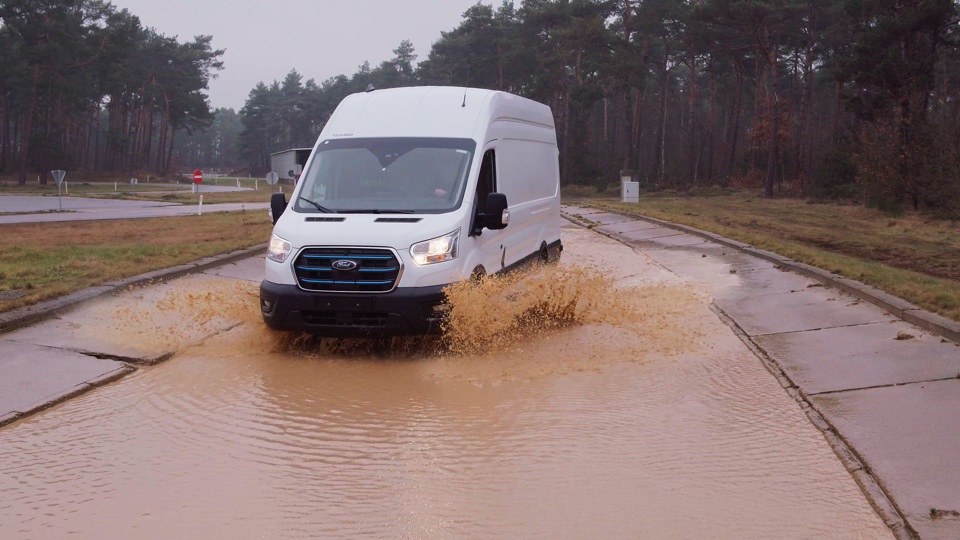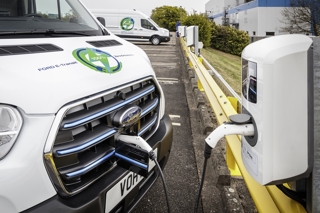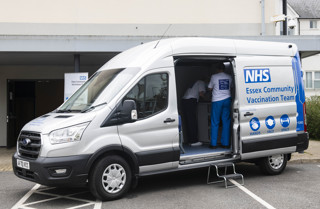The new electric Ford E-Transit has undergone a punishing testing regime to replicate a lifetime of fleet use, ahead of going on sale next year.
The Ford E-Transit undertook 10 years’ worth of hard work in just 12 weeks, which incuded challenging winter driving conditions in Michigan, in the US, and simulated extreme heat, cold and altitude in Ford’s environmental test chamber in Cologne, Germany.
Furthermore, it had to endure the giant potholes and rough road surfaces at the company’s Lommel Proving Ground in Belgium, with separate E-Transit testing being conducted at the Dunton Technical Centre in Essex.
The testing recreates the effects of more than 150,000 miles of driving for fleets operating in the most arduous situations.
“We test all our vans in conditions above and beyond anything they are likely to face in the hands of customers”, said Andrew Mottram, chief programme engineer for the E-Transit at Ford.
“The all-electric E-Transit is no different – by pushing it to the limit in our controlled test environments, we can be confident that it will reliably serve our customers as they switch to all-electric power for their businesses.”

Durability of the E-Transit’s battery pack, electric motor and unique rear suspension were tested by repeatedly driving the new model through mud and salt baths and through saltwater sprays, simulating winter roads and fords as well as testing the components’ corrosion resistance. The electric motor’s reliability was proven by running it continuously for 125 days.
FIRST E-TRANSIT FLEET TRIALS
The manufacturer announced the first European fleet trials of the new E-Transit, with prototype vehicles joining fleets to operate in real-world conditions, last month.
Ford did not reveal the names of the fleets involved, but businesses in the supermarket, home delivery, postal services and utilities sectors in the UK, Germany and Norway are taking part.
The E-Transit is part of a major $30 billion investment by Ford into electrified vehicles by 2025. The company has stated its European commercial vehicle range will be 100% zero-emission capable, all-electric or plug-in hybrid by 2024, with two thirds of commercial vehicle sales expected to be all-electric or plug-in hybrid by 2030.
























Login to comment
Comments
No comments have been made yet.